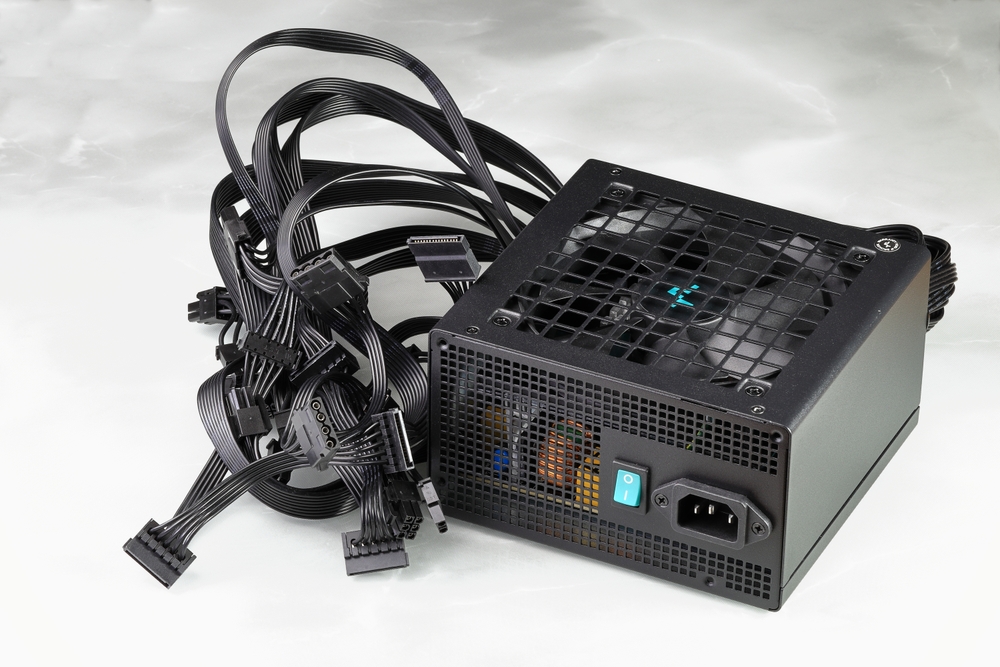Introduction: What is a Computer Power Supply?
When assembling or upgrading a computer system, one of the most crucial components to consider is the computer power supply (PSU). Often overlooked, the power supply unit is responsible for converting electrical power from your wall outlet into a usable form of energy for your computer. It supplies power to essential components like the motherboard, processor (CPU), graphics card (GPU), and storage devices, ensuring everything runs smoothly and efficiently. In this guide, we will explore everything you need to know about computer power supplies, including their types, features, and how to choose the right one for your build.
The Role of a Computer Power Supply in IT Hardware
The computer power supply is an essential part of any IT hardware setup, as it provides the necessary electrical energy for the operation of the system. It converts the alternating current (AC) from your wall outlet into direct current (DC) that is needed by the components inside your computer. Without a power supply, your computer would be unable to function.
In addition to providing power, a high-quality power supply also ensures that the power is stable and consistent. Power fluctuations can damage sensitive components like the motherboard, processor, and storage devices, making the quality of the PSU a critical factor for the longevity and reliability of your computer hardware.
Types of Computer Power Supplies
When choosing a computer power supply, it’s important to understand the different types of PSUs available. There are several factors to consider when selecting the right one for your needs, including the wattage, form factor, and efficiency rating.
1. ATX Power Supply
The ATX power supply is the most common type of PSU found in modern desktop computers. It is designed to fit inside standard ATX cases and provides sufficient power for most consumer-level systems. The ATX power supply comes with various wattage options, allowing you to choose one based on your hardware needs. These are typically used in gaming PCs, workstations, and home desktop setups.
2. Modular Power Supply
A modular power supply allows you to attach only the cables you need, reducing clutter inside the case. This not only improves the aesthetics of your build but also helps with airflow and cooling. If you plan to build a high-performance gaming PC or a workstation that requires multiple graphics cards and storage devices, a modular PSU is an excellent choice. While more expensive than non-modular units, they offer superior flexibility and convenience.
3. Non-Modular Power Supply
A non-modular power supply comes with all cables permanently attached. These power supplies are generally more affordable than modular units but can lead to cable clutter inside your case. If you’re building a budget system or don’t mind a little extra cable management, a non-modular PSU is a cost-effective option. They’re often used in office PCs or basic desktop computers that don’t require excessive power.
4. SFX Power Supply
The SFX power supply is a smaller form factor designed for compact computer builds such as mini-PCs or small form factor (SFF) cases. If you’re building a compact gaming PC or a portable workstation, an SFX PSU may be necessary to ensure that your system fits in tight spaces while still providing the necessary power.
Key Features of a Computer Power Supply
When shopping for a computer power supply, there are several key features and specifications to consider. These features ensure that the PSU meets your needs and provides reliable, long-lasting power to your system.
1. Wattage
The wattage of a PSU refers to the maximum amount of power it can deliver to the computer’s components. Choosing the right wattage is crucial for the stable operation of your system. If your PSU is underpowered, it can cause instability or even hardware failure. Conversely, using an overly powerful PSU may lead to inefficiencies and unnecessary costs.
To determine the ideal wattage for your system, consider the total power draw of your components. CPUs, graphics cards, and storage devices consume varying amounts of power, and high-end gaming setups or workstations will require more power than basic office PCs. It’s always a good idea to leave some headroom—typically 20–30% more wattage than the total power requirement of your system.
2. Efficiency Rating
Efficiency is another important factor when selecting a computer power supply. The efficiency rating indicates how much of the electricity supplied to the PSU is converted into usable power for your system. A higher efficiency means less energy wasted as heat, which can lead to lower electricity bills and a cooler, quieter system.
PSUs are typically rated based on the 80 Plus certification, which measures efficiency at various loads. Ratings range from 80 Plus Bronze (80% efficiency) to 80 Plus Titanium (94% efficiency), with Platinum and Gold ratings offering higher efficiency. The more efficient the PSU, the less energy is wasted, making it an environmentally friendly option.
3. Overload and Protection Features
To safeguard your computer hardware, a quality power supply comes with various protection features. These include:
- Over Voltage Protection (OVP): Protects your components from receiving too much voltage.
- Under Voltage Protection (UVP): Prevents the PSU from supplying power if the voltage drops too low.
- Over Power Protection (OPP): Shut down the PSU if the system is drawing more power than it can handle.
- Short Circuit Protection (SCP): Ensures the PSU stops supplying power if a short circuit is detected.
These protection mechanisms help ensure the safety and reliability of your system, especially in the event of electrical surges or failures.
How to Choose the Right Power Supply for Your Computer Build
Choosing the right computer power supply depends on various factors, including the type of system you’re building, the components you plan to use, and your budget. Here’s a step-by-step guide to selecting the best PSU for your setup:
1. Determine Your Power Needs
First, calculate the total power draw of your system. Consider the wattage requirements of your processor, graphics card, storage devices, and any other peripherals you may add. Online power supply calculators can help estimate the power requirements for your build.
2. Select the Appropriate Wattage
Once you have an estimate of your system’s power needs, select a PSU with a power rating that comfortably exceeds that number. Ideally, choose a PSU with at least 20% more wattage than your system’s requirements to ensure stable performance and provide headroom for future upgrades.
3. Choose a Trusted Brand
Opt for a computer power supply from a reputable manufacturer. Brands like Corsair, EVGA, and Seasonic are known for their high-quality PSUs that provide reliability, efficiency, and protection features. While it may be tempting to go for a cheaper, no-name PSU, investing in a trusted brand will ensure your computer hardware is protected.
4. Consider the Form Factor
Make sure the PSU you choose is compatible with your computer case. ATX power supplies fit most standard cases, while smaller SFX power supplies are designed for compact builds. Be sure to check your case’s specifications to ensure proper fitment.
5. Check for Certification
Look for 80 Plus certification to ensure the PSU meets high-efficiency standards. A higher certification means better energy efficiency, less heat, and lower operational costs.
Common Myths About Computer Power Supplies
As with any aspect of computer IT hardware, there are a few common misconceptions about computer power supplies. Here are some myths debunked:
-
Myth: Higher Wattage Means Better Performance Wattage doesn’t necessarily affect performance; it’s the quality and efficiency of the PSU that matter most. Choose a PSU with the right wattage for your system’s needs.
-
Myth: All power supplies are the same, and not all PSUs are created equal. Factors like efficiency, protection features, and reliability vary significantly between brands and models.
-
Myth: A Cheap Power Supply is Fine for Any Build While budget PSUs may seem attractive, they often lack important safety features and may not last as long. A quality PSU is worth the investment to protect your computer hardware.
Conclusion: The Importance of Choosing the Right Power Supply
The computer power supply is an integral part of your system, responsible for powering every component from the motherboard to the storage devices. Choosing the right PSU ensures that your IT hardware runs efficiently, reliably, and safely. Whether you’re building a basic desktop or a high-performance gaming PC, understanding the different types of power supplies, their features, and how to select the best one for your needs is essential for getting the most out of your system. By investing in a high-quality power supply, you can protect your hardware and optimize your system’s performance for years to come.




